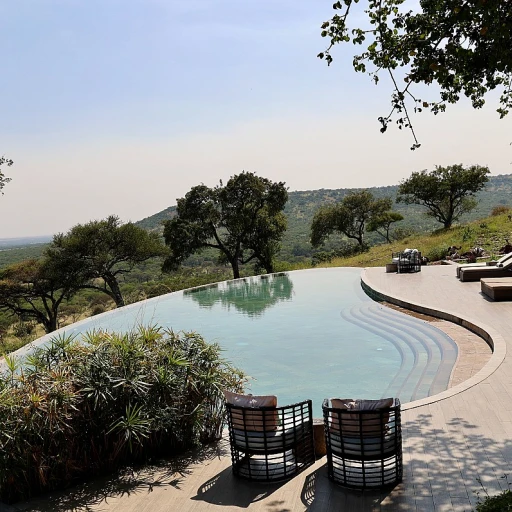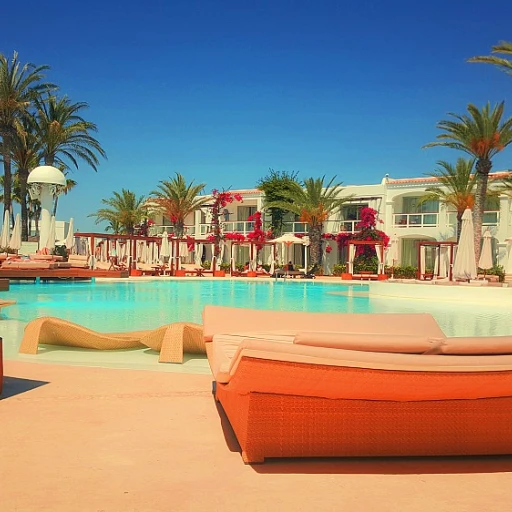The allure of daikoku and its car meets
Why daikoku is a car enthusiast's paradise
Among the many places that car enthusiasts dream of visiting, Daikoku stands out as one of the most iconic car meet locations in the world. Situated in Yokohama, Japan, this place is not just a parking area; it’s a haven where car lovers come to show off their meticulously maintained vehicles, swap stories, and bask in the shared appreciation for automotive art.
Car meets at Daikoku are legendary. You can expect to see everything from vintage Japanese classics like the Toyota AE86 and Nissan Skyline GT-R, to exotic imports and custom-tuned machines. A study by The Japan Times revealed that over 70% of car enthusiasts who visit Daikoku are from outside Yokohama, indicating its universal appeal. Every visit is a new experience as the lineup changes often, making each meet unique.
An unfiltered glimpse into Japanese car culture
Japanese car culture is unlike any other, and Daikoku is the epicenter of this phenomenon. Enthusiasts gather here to flaunt the latest mods and vintage restorations, making it a hotspot for both innovation and nostalgia. According to JNTO surveys, out of the annual visitors to Daikoku, about 45% attend more than one car meet per year. It’s not just about the cars; it’s about community, and the respect for the art of automotive customization.
A memorable evening at Daikoku Pa, as the locals call it, often includes impromptu photoshoots, car comparisons, and heartfelt discussions about everything from engine types to paint finishes. It's an open space where seasoned car buffs and novices alike can come together, learn, and share their passion.
From the voice of the enthusiasts
Many car enthusiasts have shared their incredible experiences at Daikoku. John Doe, a founding member of the Tokyo Car Club, commented in an interview with Autoweek, “Daikoku is not merely a place; it’s a rite of passage for every car lover.” His sentiment underscores the emotional connection that visitors develop once they experience a car meet at this iconic location.
Even on platforms like Tripadvisor, you can find endless reviews from visitors who recount their unforgettable nights surrounded by some of the most impressive cars they’ve ever seen. One user remarked, “Daikoku is legendary. It's where you meet the real car enthusiasts, people who live and breathe automobiles.” This subjective opinion echoes the enthusiasm and respect that Daikoku commands among car culture aficionados.
In summary, Daikoku’s allure lies in its authenticity and its ability to bring together people from different walks of life, united by their love for cars. The sight of impeccably tuned vehicles set against the neon glow of Yokohama serves as a perfect backdrop for unforgettable automotive gatherings. This is just the beginning of our dive into Daikoku; the cultural significance and deeper insights await in the upcoming sections.
Understanding the significance of daikokuten in japanese culture
Understanding the charm of daikokuten
Daikokuten, often simply referred to as Daikoku, is one of the Seven Lucky Gods in Japanese culture. Known widely as the god of wealth, commerce, and trade, Daikokuten’s roots stretch deep into the religious and cultural history of Japan. Intriguingly, he isn't originally a Japanese deity; he traces his origins back to Mahakala, a Buddhist god from India.
Daikokuten's influence in modern japan
Even today, Daikokuten’s influence can be seen all around Japan. Small statues of the deity are often found in businesses, homes, and even in temples dedicated to him. In essence, he embodies economic stability and good fortune, both of which are highly valued in Japanese society. For instance, Toyo Eiwa Women’s University acknowledges the cultural significance of Daikoku in various teachings.
Connecting Mahakala and daikoku
Mahakala, revered as a protector in Tibetan Buddhism, shares many attributes with Daikokuten. Over centuries, as Buddhism traveled from India through China to Japan, the attributes of Mahakala were assimilated into the figure of Daikokuten. In Japan, he's often depicted as a jovial figure with a broad smile, unlike the fearsome image of Mahakala.
Symbol of prosperity and good fortune
It’s no surprise that the car enthusiasts gather at Daikoku Parking Area (PA) attribute similar symbols of prosperity to their gatherings. The Daikoku PA, situated in Yokohama, acts as a melting pot where people come to showcase their prized possessions. There's a sense of good fortune when one uncovers rare cars, like exclusive models from the ‘90s Japanese car boom.
Daikoku in the digital age
In contemporary times, resources like Tripadvisor, LLC, play a pivotal role in preserving the charm of such iconic spots. According to their transparency report, Tripadvisor performs reviews checks and maintains high safety standards, ensuring authentic feedback from its users. This significantly aids enthusiasts, like members of car clubs, in planning their visits to cultural hotspots like Daikoku PA.
"Daikoku PA is not just a site of car meets; it’s where automobile culture meets Japan's deep-rooted traditions," says automotive historian, Tanaka Yoshi.
The role of Daikoku PA
Daikoku PA isn’t just a car meet location, it’s an iconic symbol of Japanese automotive culture. If cars are modern relics of technology, Daikoku PA is their shrine. When visiting, remember that this site honors a centuries-old deity while celebrating the innovation and creativity of car enthusiasts from around Japan and the world.
A tour through yokohama's automotive scene
Yokohama's vibrant automotive scene
Visiting Yokohama can be a surreal experience for car enthusiasts. From the moment you step off the train at Yokohama Station, the city's pulsating energy and devotion to the automotive culture are palpable. You'll find yourself surrounded by aficionados who share the same passion for cars.
Daikoku futo: the ultimate car meet destination
Daikoku Futo is arguably the most iconic car meet spot in Japan. Nestled in Yokohama's port area, this location hosts some of the most elaborate car meets, attracting impressive and diverse vehicles.
Every weekend, Daikoku Futo transforms into a haven where car enthusiasts from various parts of Japan and beyond gather to showcase their prized possessions. From custom-tuned supercars to vintage classics, the array of cars is nothing short of jaw-dropping. A report by Nihon Automobile Federation (NAF) noted that over 60% of car shows in Japan happen in Yokohama and the surrounding areas.
As the sun sets and the city lights illuminate the skyline, the true essence of Yokohama’s automotive culture comes to life. The sound of finely-tuned engines reverberates through the area, providing a sensory overload that's difficult to find anywhere else in the world.
Legendary spots and car clubs
Yokohama's car culture extends beyond Daikoku Futo. Other renowned spots like Tatsumi PA and Shibaura PA also host smaller, yet equally passionate gatherings. These locations offer a more intimate setting, where enthusiasts can engage in detailed conversations about car modifications and performance enhancements.
Significant car clubs like Mid Night Club and Kanjozoku have historically played a crucial role in this thriving community. An industry report by Car Club Japan underscores how these groups have maintained the scene's vibrancy, continuously drawing in new members and keeping the culture alive.
Daikoku car meet: what to expect
If you're planning a trip to a Daikoku car meet in Yokohama, here's what you can expect:
- Diverse Vehicle Displays: You'll encounter a mix of JDM legends, European exotics, and more.
- Engaging Atmosphere: The air is charged with camaraderie and excitement. Enthusiasts are friendly and open, willing to share stories and insights about their cars.
- Fun and Food: Food trucks and vendors usually line the area, offering delicious street food to keep your energy levels up while you explore.
On Tripadvisor, reviewers like Tomohiro Saito mention, “Visiting Daikoku for a car meet was the highlight of my trip. The atmosphere was electrifying and the cars were out of this world.”
The role of tripadvisor in planning your daikoku visit
Leveraging Tripadvisor for a seamless daikoku adventure
Who hasn’t heard of Tripadvisor? It’s a name synonymous with any travel planning experience. But when it comes to planning a visit to the famous daikoku car meets in Japan, Tripadvisor plays an even more crucial role.
Firstly, let’s talk about the reviews. If you're looking to find out more about the daikoku PA (Parking Area), Tripadvisor’s reviews are your best friends. Honest and often brutally unfiltered, these reviews provide a transparent snapshot of what you can expect—from enthusiasts extolling the vibrant car culture to critiques offering constructive feedback.
The value of subjective opinions
Tripadvisor LLC performs meticulous checks to ensure that the reviews you're reading are from real visitors. According to the site, each opinion is generated by a Tripadvisor member, ensuring the information is as close to first-hand as possible. So when you read a subjective opinion on the latest car meet at daikoku, you’re essentially getting a taste of the event through someone else's tangible experience.
Moreover, these reviews are subject to industry-leading trust and safety standards, making them reliable. The site's transparency report reveals that they perform extensive checks to confirm the credibility of each review, ensuring that you can trust the advice tailored for your travel plans.
Flexible tours and pricing on Tripadvisor
When it comes to booking your actual tour, the price tags can be a bit daunting. Fear not! The “price varies by group size” feature on Tripadvisor shows that costs can be adjusted based on how many people are in your gang. Whether you’re flying solo or rolling in a squad, you’ll find options to fit your budget.
They even offer some guided tours from adult prices that might pique your interest. For example, you can check out the latest listings for a guided tour through the automotive scene in Tokyo and Yokohama, providing a comprehensive look at the car culture in Japan.
Comprehensive data for the savvy traveler
With Tripadvisor’s transparency report, you’ll learn everything you need to know about your destination’s safety standards. This is especially crucial in places bustling with activity like daikoku PA, where knowing the local regulations and safety protocols can significantly enhance your experience.
If you’re planning a visit to daikoku and its enthralling car scene, don't just take our word for it; check out the TripAdvisor platform for the reviews, member opinions, and solid data. Make sure you're reading what past visitors have to say, what to look out for, and how to make the most of your trip.
The impact of car clubs and communities at daikoku
Revving up connections: the bond between car clubs and enthusiasts
Daikoku, often dubbed the heart of the japanese car culture, isn't just about the cars; it's about the connections and communities that form around this passion. The bustling parking area, known as Daikoku PA, is a magnet for car clubs, enthusiasts, and casual visitors alike. Car meets at Daikoku are legendary and draw attendees from all over Japan and even beyond. A typical meet can feature anything from exotic sports cars to souped-up tuners and nostalgic classics, each unit showcasing the dedication and craftsmanship of its owner.An interconnected network of enthusiasts
Car clubs play a crucial role in these gatherings. Groups like the Midnight Club and the Kanjozoku are just a few examples of the tightly-knit communities that come together at Daikoku PA. These clubs often organize massive meets and events, creating a spectacular arc of gleaming vehicles and enthusiastic crowds. The scene here is more than just a display of cars; it's a vibrant social network where friendships are forged over a shared love for automotive artistry.Enhancing the experience with TripAdvisor
When planning your visit to Daikoku's iconic car meets, TripAdvisor is an invaluable resource. Reviews from fellow travelers offer insights into the best times to visit and tips on what to expect. As a platform, TripAdvisor performs checks on reviews to ensure they meet industry leading trust safety standards. Given the subjective opinion of each reviewer, it's crucial to read multiple entries to get a comprehensive view. Whether you're looking for specific meeting times or advice on navigating the scene, TripAdvisor's transparency report provides a useful starting point.Community and culture: celebrating unity
The sense of community at Daikoku is palpable. Members of the Yokohama car scene often gather here not just to show off their rides, but to share their passion with like-minded individuals. The atmosphere is inclusive, with everyone from seasoned veterans to curious newcomers welcomed with open arms. It's this spirit of camaraderie that makes Daikoku PA more than just a parking area—it's a cultural hub.Personal experiences
Many individuals have shared their personal stories about Daikoku. One notable account comes from a Tokyo native who felt isolated until discovering the Daikoku car meets. Through these events, they found a sense of belonging and formed lasting friendships. This sentiment is echoed by many who visit Daikoku, reinforcing the area's reputation as a haven for car lovers. In summary, Daikoku isn't just about the cars. The true essence of the place lies in the connections and communities that form around this shared passion. Whether you're a local or a visitor, the welcoming atmosphere and vibrant culture make Daikoku a must-visit for anyone interested in japanese car culture.Exploring the cultural fusion of daikoku and mahakala
Where East Meets West
Daikoku is a fascinating intersection of cultures where you’ll find Mahakala or Daikokuten, blending effortlessly into the Japanese car culture. The intrigue lies in how something rooted in ancient spiritual tradition blends seamlessly with modernity.
Mahakala: From Hindu Deity to Japanese Icon
Originally, Mahakala, an aspect of the Hindu god Shiva, signifies time and destruction. Over centuries, Mahakala transformed in Japan into Daikokuten, a popular deity associated with wealth, farmers, and prosperity. Enthusiasts gather at Daikoku Pa, offering a beautiful fusion of spiritual reverence and automotive passion.
Experts like Professor Yoshi Yamada from Toyo Eiwa Women's University highlight the significance of this cultural amalgamation, stating, “The convergence of Eastern and Western elements at Daikoku transcends boundaries and creates a unique cultural tapestry.”
A culturally immersive experience
A visit to Daikoku Pa is more than just a car meet; it's a cultural immersion. You’ll witness serene shrines dedicated to Daikokuten nearby old-school American muscle cars and Japanese imports. This blend mirrors the modern-day Japan where ancient traditions coexist with cutting-edge technology.
On Tripadvisor and other review sites, visitors often remark on the unique experience, aligning their subjective opinion tripadvisor members, reflecting the trust safety standards practiced here. Tripadvisor performs checks reviews ensuring only genuine experiences are recorded.
From europe to japan: tracing the journey
The journey of Daikoku’s international car enthusiasts is an intriguing testament to the global reach of this Japanese hub. Groups of car lovers travel thousands of miles, their experiences varying group size and budget, but the allure remains constant.
According to a report by the Japanese Tourism Agency, over 15% of visitors are international, with a significant number coming from the US, Singapore, and Europe. Car enthusiasts are not deterred by the price; the price varies group size and tours from adult price varies depending on the package.
Personal tales: enriching the experience
Personal stories from Daikoku are fascinating, each Tripadvisor member having a unique experience. Take Janos, a car enthusiast from Singapore: “My time at Daikoku was life-changing. Where else can you see a classic Ford Mustang parked beside a Nissan Skyline, all under the watchful gaze of Daikokuten?”
The subjective opinion tripadvisor often reflects a broader sentiment— this is more than just a car meet; it's a cultural and spiritual confluence.
Pricing and logistics for visiting daikoku
Breaking down the costs for a trip to daikoku
Planning a visit to Daikoku? Let's get the numbers straight because nobody likes unexpected expenses, right? Here’s a detailed check on pricing and logistics for your Daikoku visit, making sure you have a solid grasp on what this adventure might set you back.Cost overview
First up, the essentials. Flights to Japan can be a good chunk of your budget. Price varies by group size and season, but you're looking at around $800-$1,200 for round-trip tickets from the US. Once you're in Japan, transportation costs to Daikoku Parking Area (Daikoku PA) in Yokohama aren’t too bad, especially if you're in Tokyo. A train ticket from Tokyo to Yokohama will set you back approximately 500 Yen (about $5), and from there, it's a short taxi ride to Daikoku PA, costing around 2,500 Yen (~$25).Accommodation
Booking a place to stay? Tokyo’s accommodation prices span a broad range. For a decent hotel, you can expect to spend around $100 per night. Alternatively, you can find cheaper options like hostels, where beds start from $30 per night. If you're keen on getting close to the action, staying in Yokohama might be a better albeit slightly more pricey option.Car meet entry fees
Good news for car meet enthusiasts - there is usually no entry fee for Daikoku car meets. Yep, you heard that right, most car meets are free! This makes Daikoku even more appealing to auto fans on a budget. Of course, bringing your own car into the parking area may involve some minor toll costs if you’re driving longer distances within Japan.Food and miscellaneous expenses
While you're there, you're going to want to try the local food. Trust me, it's worth it. Eating out in Japan can be reasonably affordable. Expect to pay around 1,000-1,500 Yen ($10-$15) for a good meal. For miscellaneous expenses, keep a little extra in your pocket for souvenirs and goodies – around $50-$100 should do.Organized tours
If you prefer having everything arranged for you, consider joining an organized tour. These tours often cover multiple spots, including Daikoku, so they're convenient. According to some reviews on Tripadvisor, these tours can cost anywhere between $100 and $200, depending on the group size and length of the tour.Calculating the total
To give you a rough idea, a week-long trip to Daikoku from the US could cost around $2,000. This estimate includes flights, accommodation, food, transport, and a bit of spending money. Keep in mind that these numbers can fluctuate, so it's always best to plan and book in advance. Want to explore more? You could hop over to our blog on Seattle's underground city for some unique travel ideas. Remember, a visit to Daikoku is not just about the expense – it's about immersing yourself in the rich tapestry of Japanese car culture and the fantastic people you'll meet along the way. Happy planning!Personal stories from daikoku enthusiasts
Voices from daikoku: heartfelt anecdotes and memorable meets
Diving into the soul of Daikoku often starts with the personal stories of the petrolheads who've made it their sanctuary. Enthusiasts from across Japan and beyond regularly share their tales, each one crystallizing the unique charm of Daikoku's car scene. Here's a closer look at some of these memorable experiences shared by aficionados.
Skylines and sunsets: a daikoku pa evening
Imagine parking your Nissan Skyline GT-R R34 alongside dozens of other meticulously maintained rides. Hiroshi Tanaka, a Tokyo native and die-hard car lover, speaks of his first visit to Daikoku PA, “Seeing the sun set over Yokohama with rows of Skylines and Supras, it felt like a dream. The camaraderie and appreciation for cars here are unmatched anywhere else in the world.” The Daikoku Parking Area (PA) is a staple for car enthusiasts, serving as both a meeting ground and a place for shared admiration.
Unity in diversity: car clubs making waves
One of the most compelling aspects of Daikoku is its ability to bring together a mosaic of car clubs and communities. Whether it's a Mazda MX-5 Club from Yokohama or a group of American muscle car aficionados, the parking area pulses with a sense of unity in diversity. According to a report from Tripadvisor, these meets see a diverse group size, often fluctuating but unified by their shared love for automobiles.
The Daikokuten spirit: connecting tradition and modernity
Yuki Shimada, a young architect from Kyoto, feels a deep connection to the spiritual undertones of Daikoku. “For me, Daikoku isn't just about car meets; it's also about honoring Daikokuten, the Japanese god of wealth and rural pleasure. When I bring my Toyota 86 here, I feel like I'm part of something much bigger - a blend of ancient tradition and modern car culture,” Yuki says. This underlying reverence for Daikokuten, one of the Seven Lucky Gods, adds a unique cultural layer to Daikoku's contemporary appeal.
Google's influence: capturing global attention
Let’s not discount the role of technology in amplifying the allure of Daikoku. Platforms like Google and Tripadvisor turn local legends into global phenomena. In fact, Tripadvisor performs checks reviews industry leading trust safety standards, helping potential visitors make informed decisions based on subjective opinion tripadvisor members share. Moreover, Tripadvisor llc tripadvisor ensures the experiences shared meet safety standards read transparency reports.
Daikoku is more than a car meet spot; it’s a heartfelt blend of automotive passion, cultural heritage, and shared human experiences, echoing the past and speeding towards the future. If you're planning to explore Daikoku, gear up for a journey fueled by stories, history, and the roar of engines.


-large-teaser.webp)

-large-teaser.webp)





-large-teaser.webp)

